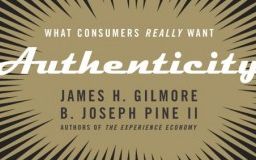So what possibly could romance novels featuring awkwardly-smooth-talking fictional Native Americans, plagiary, fans, and black-footed ferrets have in common? One bizarre detective story by a group of go-getter romance novel fans on the blog, Smart Bitches, Trashy Books! In an extensive investigation of the writings of Cassie Edwards, our intrepid detectives found many instances of language matching without quotation, including from an science-based nature article about ferrets from Defenders magazine. (quick summary here at GalleyCat)
While I can’t speak for the Smart Bitches, I would think that part of their motivation was to protect their fan community. And in response, they’ve gained a great deal of fame for their work. In an odd twist, the plagiarism has lead to the author of the original ferret article, Paul Tolme, to find a wider audience for his writing through an article in Newsweek about this situation (Dear Author has detailed profiles of all of the known uncited). The scandal has also led to greater awareness of the black-footed ferrets, including a donation challenge by another well-known romance novelist, Nora Roberts.
But this case also points out the difference between law and culture. Culturally, we generally accept that when people use the words of others there should be some type of attribution. (For example, while early Creative Commons licenses had attribution as an option, it was later incorporated into all licenses because almost no one didn’t want their work attached to their name.) However, U.S. law doesn’t require attribution to the author (Rebecca Tushnet has written an article explaining why she thinks attribution should not be incorporated into copyright law).
As posted on Smart Bitches , Dear Author, and MediaBistro’s GalleyCat, the attorney for Cassie Edwards conflates these two issues, by stating that her use of the writings of others could be considered fair use, (“copyright fair-use doctrine permits reasonable borrowing and paraphrasing of another author’s words, especially for the purpose of creating something new and original”), and anyway attribution standards vary and romance novels don’t attribute:
“Although it may be common in academic circles to meticulously footnote every source and provide citations or bibliographies, even though not required by copyright law, such a practice is virtually unheard of for a popular novel aimed at the consumer market.”
Fans of course have of examples proving this standard for romance novels wrong.
But if glossing over attribution mattered so little, last year’s Harvard novel plagiarism scandal would matter little to readers; after all, if Kaavya Viswanathan had just attributed passages to their originators the whole thing wouldn’t have mattered. *snark voice* (Rachel Smydra argues that part of the problem are the attribution standards in “chick lit”).
Especially when it is easy to do so, let’s (at least) give credit where credit is due. Thanks in this case to the intrepid Smart Bitches!
(Image from the U.S. Fish and Wildlife Service page on black-footed ferrets)




Smart Bitches has posted an update stating that Cassie Edwards and her publisher have parted ways.